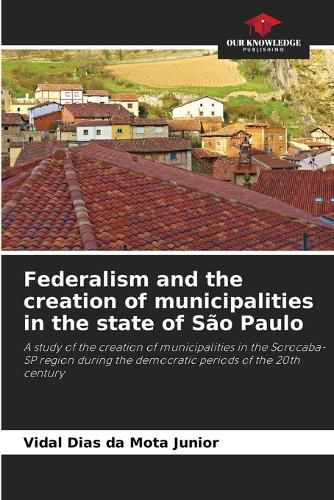Readings Newsletter
Become a Readings Member to make your shopping experience even easier.
Sign in or sign up for free!
You’re not far away from qualifying for FREE standard shipping within Australia
You’ve qualified for FREE standard shipping within Australia
The cart is loading…






This book analyzes the process of creating municipalities in the state of Sao Paulo in two periods of Brazilian democracy (1946-1964 and 1988-1996). To this end, a comparative analysis was made of a series of emancipations that took place in the Sorocaba Administrative Region. The actors, strategies and political motivations that influenced the expansion of the number of municipalities in the region were investigated. A comparison of the two periods revealed a number of similarities in the creation of municipalities, such as the predominance of districts with small populations and the strong role of the state legislature. It was clear that, in these cases, the creation of municipalities is the result of at least two factors: 1) it is the result of a specific process of action by local leaders and members of parliament whose discourse was based on improving public services and development; 2) it is the result of the interest of local leaders, political or economic, who wanted to ensure that the money raised by the district was not shared directly with other localities, but could be used to meet their demands for power and influence, especially regionally.
$9.00 standard shipping within Australia
FREE standard shipping within Australia for orders over $100.00
Express & International shipping calculated at checkout
This book analyzes the process of creating municipalities in the state of Sao Paulo in two periods of Brazilian democracy (1946-1964 and 1988-1996). To this end, a comparative analysis was made of a series of emancipations that took place in the Sorocaba Administrative Region. The actors, strategies and political motivations that influenced the expansion of the number of municipalities in the region were investigated. A comparison of the two periods revealed a number of similarities in the creation of municipalities, such as the predominance of districts with small populations and the strong role of the state legislature. It was clear that, in these cases, the creation of municipalities is the result of at least two factors: 1) it is the result of a specific process of action by local leaders and members of parliament whose discourse was based on improving public services and development; 2) it is the result of the interest of local leaders, political or economic, who wanted to ensure that the money raised by the district was not shared directly with other localities, but could be used to meet their demands for power and influence, especially regionally.